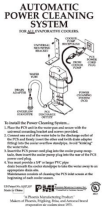
vacon • 4
Local contacts: https://www.danfoss.com/en/contact-us/contacts-list/
TABLE OF CONTENTS
Document: DPD01596C
Release date: 14.3.2019
1. Introduction ................................................................................................................ 5
1.1 Scope of supply ..................................................................................................................... 5
1.2 Related brochures and manuals........................................................................................... 5
1.3 Available drive sizes.............................................................................................................. 6
2. Enclosed drive sections .............................................................................................. 7
2.1 Incoming section ................................................................................................................... 8
2.2 Drive section.......................................................................................................................... 9
2.3 DU/DT and internal cooler section ..................................................................................... 10
2.4 Heat exchanger section.......................................................................................................11
3. Installation................................................................................................................ 12
3.1 Safety notes......................................................................................................................... 12
3.1.1 Danger................................................................................................................... 12
3.1.2 Warnings ............................................................................................................... 13
3.1.3 Earthing and earth fault protection...................................................................... 14
3.2 Storage ................................................................................................................................ 15
3.3 Lifting and moving the cabinets.......................................................................................... 16
3.4 Fixing the cabinets .............................................................................................................. 17
3.4.1 Free space around the cabinet............................................................................. 17
3.4.2 Fixing the cabinet to the floor or wall................................................................... 18
3.5 Cabling................................................................................................................................. 19
3.5.1 Earthing................................................................................................................. 19
3.5.2 Mains and motor connection ................................................................................ 19
3.5.3 Cooling pipe connections...................................................................................... 21
3.5.4 Control connections.............................................................................................. 22
3.6 Screw tightening torques.................................................................................................... 23
4. Service ...................................................................................................................... 24
4.1 Warranty.............................................................................................................................. 24
4.2 Proactive maintenance as recommended by manufacturer.............................................. 24
4.3 Replacement instructions................................................................................................... 28
4.3.1 Drives .................................................................................................................... 28
4.3.2 Fuses..................................................................................................................... 34
4.3.3 Cabinet fans for dU/dt and internal cooler........................................................... 35
4.3.4 Internal cooler ...................................................................................................... 37
5. Technical information ............................................................................................... 39
5.1 Control and interface .......................................................................................................... 39
5.1.1 Control without speed feedback (open loop)........................................................ 39
5.1.2 Control with speed feedback (closed loop) .......................................................... 39
5.2 Load definitions ................................................................................................................... 39
5.2.1 Pump and fan load ................................................................................................ 40
5.2.2 OL(
n
base
) > OL(
n
max
) for constant torque load ..................................................... 41
5.2.3 Starting torque >> OL(
n
max
) for constant torque load ......................................... 42
5.2.4 OL(
n
base
) > OL(
n
max
) for constant power load...................................................... 43
5.2.5 OL(
n
base
) < OL(
n
max
) for constant power load...................................................... 44
5.3 Technical specifications for VACON
®
NXP liquid cooled drives ........................................ 45
6. Supplied documentation ........................................................................................... 49
6.1 Documentation examples ................................................................................................... 50
6.1.1 Cable connection table ......................................................................................... 50
6.1.2 Parts list................................................................................................................ 51
6.1.3 Wiring list .............................................................................................................. 52
6.1.4 Circuit diagram ..................................................................................................... 53
6.1.5 Switchgear layout drawing ................................................................................... 54
6.1.6 Device layout drawing........................................................................................... 55
7. Appendix ................................................................................................................... 56
7.1 Power line circuit diagram.................................................................................................. 56
7.2 P&ID drawings .................................................................................................................... 57





















